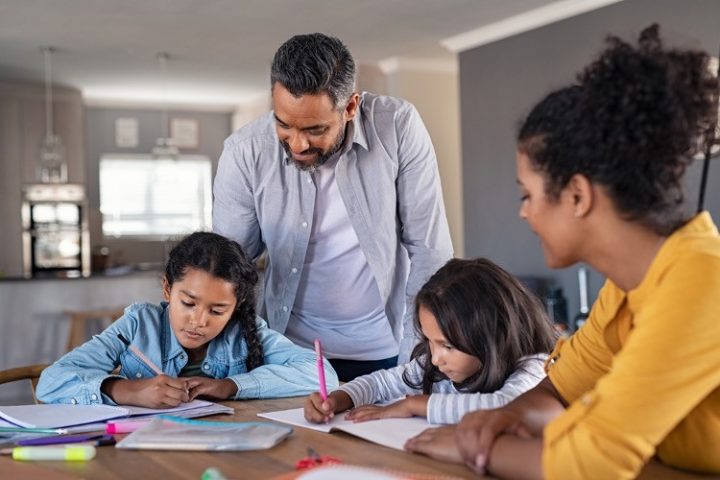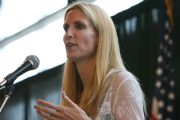
Public-school officials are panicking over drops in enrollment going into the new school year. They’re going door-to-door to enlist students, planting yard signs pleading with parents to enroll their children, requiring bus drivers to call parents during their off hours, and asking that docents make calls to parents as well. They’re hosting “town halls,” inviting concerned parents to attend and to ask questions, hoping to reduce their anxiety over putting their kids back into public schools.
For instance, Karla Loria, Adams County, Colorado, District 14’s new superintendent, went knocking on doors of parents who hadn’t enrolled their children. She talked the school board into funding a $43,000 marketing program that included five billboards asking them to enroll their kids.
She’s even reaching families outside of her district to come to her schools: “[We’re] asking, or inviting, our families outside of our district … to enroll so we can start capturing students.”
Despite all of that, enrollment in her district is down about five percent.
Dallas, Texas, Independent School District instituted a similar outreach program, yet about 12,000 students failed to show up on the first day of school.
The decline is hurting school funding. Wrote Barnini Chakroborty, Senior Investigations Reporter for the Washington Examiner, “Even with a billion-dollar federal government lifeline, public schools across the country are headed toward a financial cliff.”
Almost 60 percent of the decline is due to the growth in homeschooling. According to the U.S. Census Bureau, in a typical year a little more than three percent of the nation’s school-age children are homeschooled. By September 2020, the bureau reported that the rate of homeschooling had jumped three-fold, to 11 percent.
And it isn’t temporary, either. In Education Week’s Household Pulse Survey taken in April and May of this year, about 5.4 percent of U.S. households with school-aged children reported that they were being homeschooled.
Nebraska officials reported “significant increases” in the number of families who say they will be homeschooling their children this year. In North Carolina, more than 10,000 new families filed notices of their intent to homeschool, so many in fact that the computer system crashed. In Wisconsin, the number of families filing notice that they were going to homeschool jumped from 14,800 last year to over 23,000 this year, a 55-percent increase.
And it’s not just homeschooling that’s seeing huge increases. As Mike McShane, director of national research at EdChoice, wrote in Forbes, there have been “massive wins for the educational choice movement this year.” There are other attractive options including in-house pods where teachers are hired by families to instruct their youngsters, microschools, hybrid learning (where children attend class for part of the week and schooled at home the rest of the week), virtual learning through online classes.
All of which, says McShane, is helping “families looking outside the traditional [public school] system to provide a better education for their children.”
That’s a key point: Parents, thanks to the COVID-inspired restrictions, are being re-empowered with the concept that they, and not the public schools, are responsible for what their children learn.
This is especially true in black families. The census bureau reported a five-fold increase in the number of black homeschoolers this academic year, to more than 16 percent of the homeschooling population.
State legislators are being successfully pressured to provide more options and more funding for them. In Indiana, for example, two private, virtual-learning providers are now allowed to operate in the state, participating in the state’s school voucher program for the first time.
One of the more successful homeshooling options is FreedomProject Academy (FPA), which offers a fully accredited, Classical education for Kindergarten through High School. FPA is rooted firmly in the Judeo-Christian values as promoted in the Constitution by our Founding Fathers, who strove to guarantee the preservation of our God-given liberties.
Enrollment at FPA has closed for the fall term, but parents are encouraged to explore this particular program as a way to educate their charges and protect them from government schools as indoctrination centers for progressivism and collectivism.
The pressure to keep children away from public schools is growing, thanks in part to school boards themselves. Parents are increasingly outraged at the indoctrination being perpetrated through CRT (Critical Race Theory), along with demands that the young students be required to wear masks all day long.
McShane says this will be the “legacy” of COVID-19:
This will be the legacy of the coronavirus on the American education system.
It was finally made clear to a critical mass of legislators that families need options, and the one-size-fits-all nature of the contemporary public education system is not fit for purpose in an uncertain and changing world.
Funding a more diverse and decentralized system means creating a more resilient system and a system better tuned to the needs of the people it serves.




